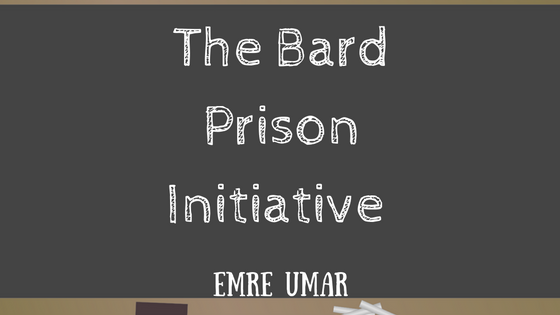On Correctional Medical Care’s website, we recently wrote a piece about comedian Jeff Ross entering a Texas prison to “roast” the inmates. In it, he asked the crowd how many of them were anticipating getting their GEDs during their stay. Some–though not most–raised their hands, indicating a willingness to learn and grow academically and fundamentally during their otherwise unfortunate stay in prison.
It’s been shown in the past that getting an education in prison benefits the prisoners upon their release. Better educated prison inmates are better prepared to enter the workforce and return to the “normalcy” of a full-time job and supporting themselves. They’re also statistically less likely to find themselves in trouble with the law– reducing the rate of recidivism that is plaguing the United States on a grand scale.
So what if prison inmates could earn more than just a GED–what if they could expand their area of study and earn a degree? The Bard Prison Initiative offers just that. One of very few higher education sources within prison walls, Bard offers the ability for inmates to earn associate’s and bachelor’s degrees while incarcerated.
Bard College is a private liberal arts college located in rural New York–by all means a very real, very legitimate and very accredited college that offers both graduate and undergraduate degrees. Within the umbrella of Bard College is the aforementioned Bard Prison Initiative, which educates about 200 students a year from five New York prisons.
Though higher education studies within prisons were not wholly uncommon previously, the federal budget for prison education programs was eliminated in 1994, causing many to cease operations. Bard, however, continued its mission to educate prisoners throughout New York, and still does so to this day.
The program, according to its website, has been a huge success, as it sports both lower recidivism rates and fairly high levels of post-release job placement. And getting in isn’t a particularly easy task. Getting into the Bard Prison Initiative program isn’t just as simple as signing a piece of paper and showing up for a class or two–there is a full-fledged admissions process to get into the bachelor’s degree program. At the culmination, real, legitimate college degrees are given to the prisoners, who can finish their liberal arts studies on their own schedule depending on their incarceration situation.
While GED programs in college have been immensely popular over time, some inmates in NY prisons have taken the next step, moving onto obtaining a college degree. And, to them, it’s not just a way to spend a few hours a day or a means of staying out of trouble–it’s a process to prepare for the future.
“In my experience in college there are definitely people who are just kind of drifting through ‘the normal path’ for upper-middle class kids without much imagination or direction,” said an undergrad volunteer at the Bard Prison Initiative. “You don’t find that sort of attitude from BPI students — they know what sort of opportunity they have on their hands and are very determined to use it.”
